We made it to Guyana!
Our trip from Tobago to Guyana was fairly uneventful, we ran through a couple of squalls but nothing too bad. Actually one of the squalls was terrible, horrifying, but we lived, and we’ll tell that story later. The trip took around two and a half days.
We sailed as far off the coast of Venezuela as possible but as soon as we reached the border of Guyana we turned toward land. The coast is low and the water is shallow. We got tired and decided to anchor for the night before navigating the mouth of the Essequibo River. The winds were light and the seas were fairly calm so we anchored four miles off the coast of Guyana in nine feet of water! Four miles, nine feet of water, crazy!
When we reached the 20 fathom line we started seeing local fishing boats and long fishing nets, some nets were around half a mile long. The coastal boats are open, between 30 and 40 feet long with a crew of about five. One end of the net is marked with a flag and the fishing boat is attached to the other end.
Approaching the Essequibo River the water turns brown:
About 10 miles from the mouth of the river we found these fishing piles, hundreds, with fishing nets strung across:
Land Ho, the coast of Guyana, and some crappy weather ahead:
…more muddy water:
And ships driven aground along the banks of the river, some for maintenance, others permanent icons:
Probably not going anywhere:
This one looks pretty nice:
Our first settlement, Parika:
Parika stelling, Dutch for wharf or pier:
We ran a couple miles south of Parika and anchored off of Roeden Rust. Barge passing by, they all waved at us:
Ferry, they waved too:
Dea Latis and Almost There, anchored, Roeden Rust Guyana:
Our first sunrise in South America:
We have lots more pictures but internet is intermittent so updates may take a while. Having a great time in Guyana, the people are the nicest people we have met anywhere, we mean it!

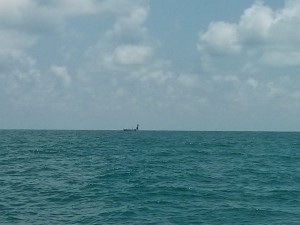
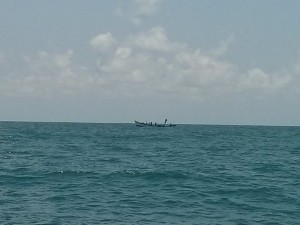
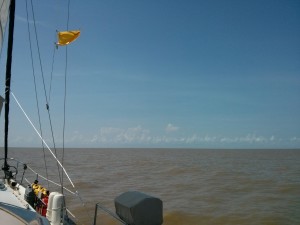
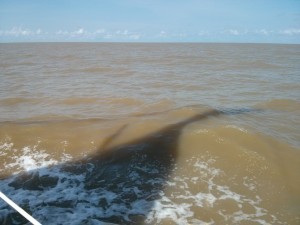
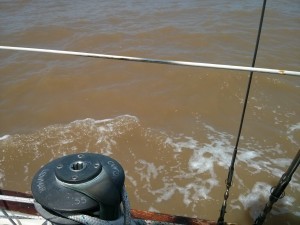
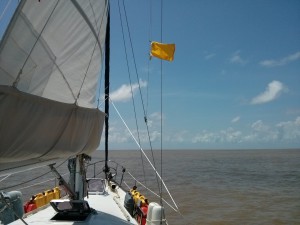
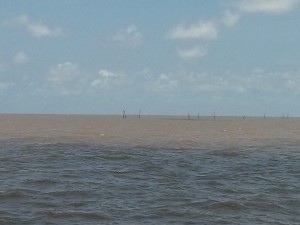
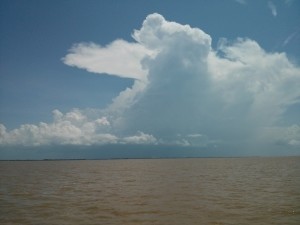
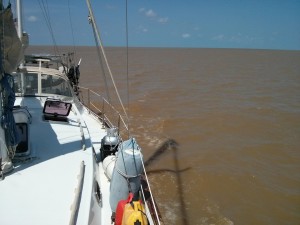
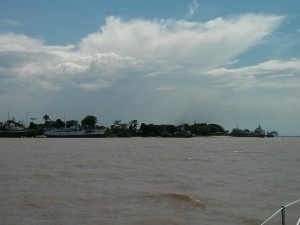
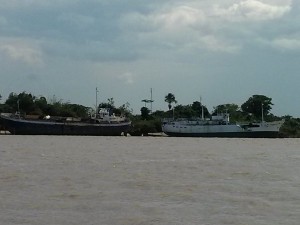
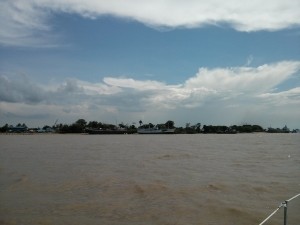
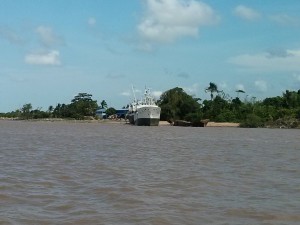
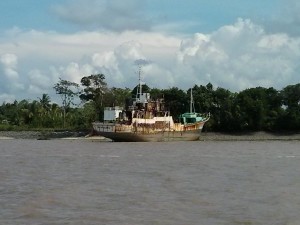
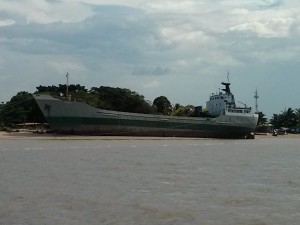
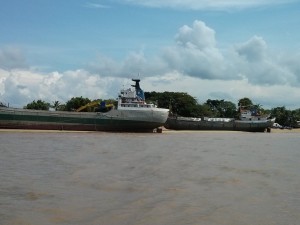
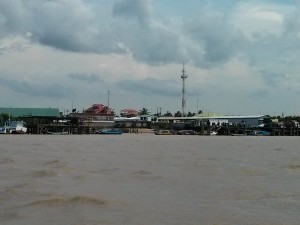
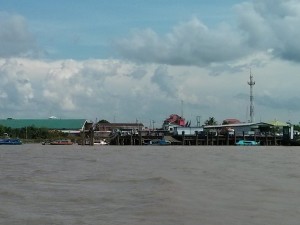
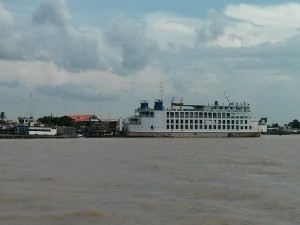
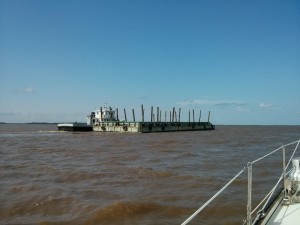
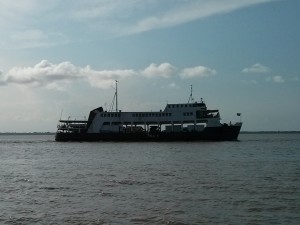
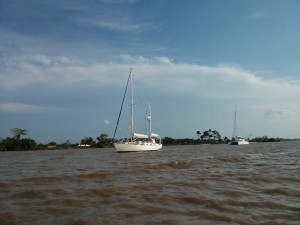
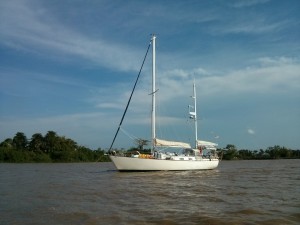
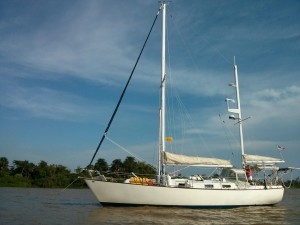
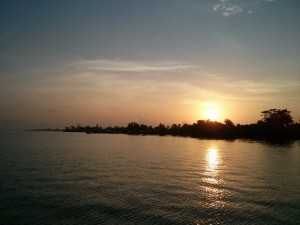
Great pictures. Some of those squats can be a bit startling. Glad that all is well. Keep the postings up when able. Love,
Dad/Bob
OOOPs “squals”